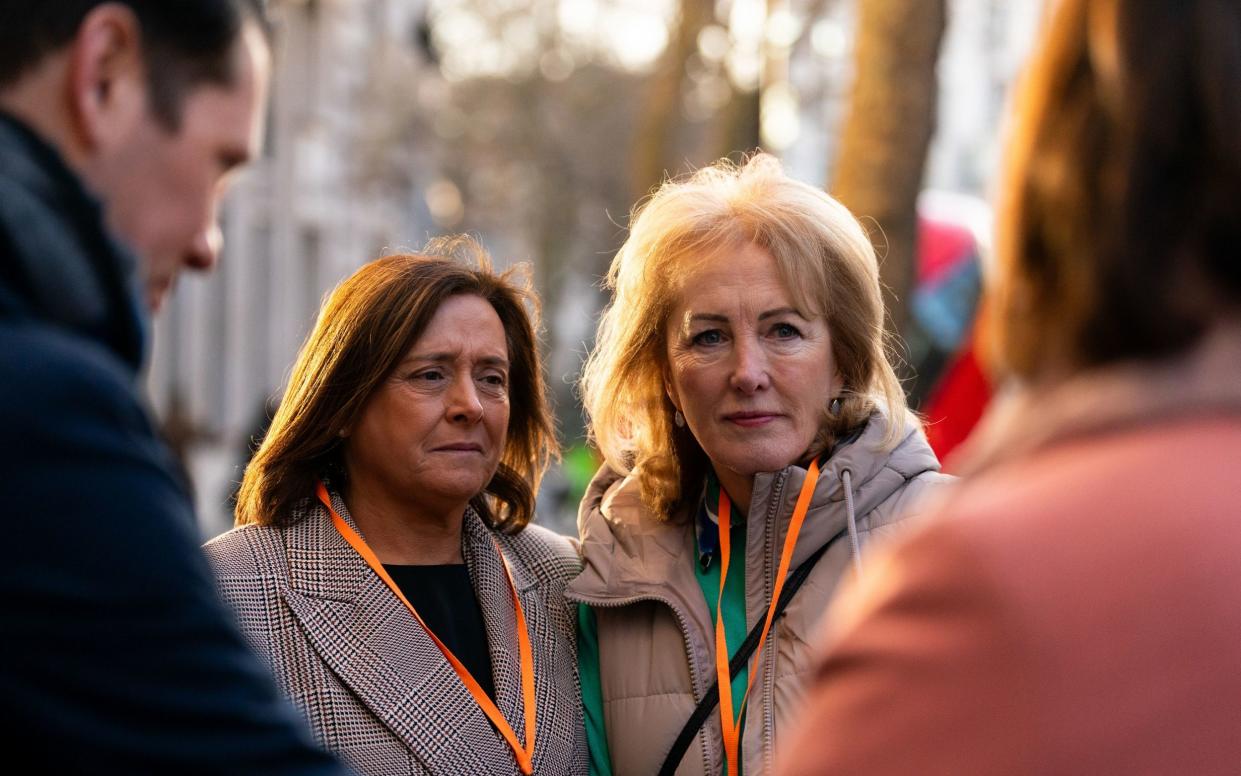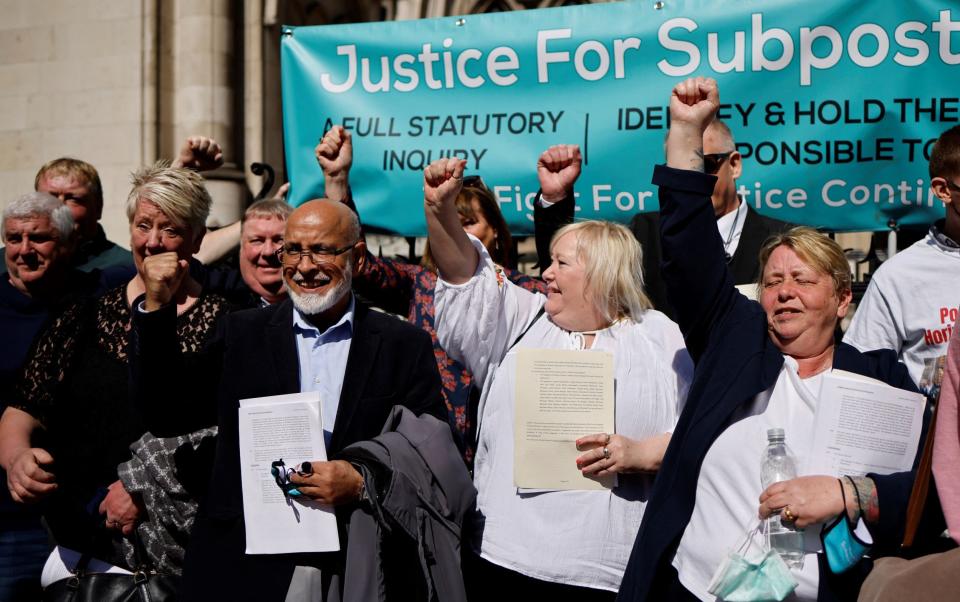Government had full knowledge of Post Office secretly sacking Horizon investigators

The Post Office planned to secretly sack independent investigators who had found bugs in the Horizon IT system at a meeting attended by a top civil servant representing the Government, documents show.
Unredacted minutes from a Post Office sub-committee in 2014 also show that management wanted to make “token payments” to sub-postmasters who were wrongly convicted due to the faulty software.
Richard Callard, from UK Government Investments, attended the meetings as David Cameron’s coalition continued to defend the Post Office and pointed to the independence of Second Sight, a forensic accountancy firm, when answering questions in Parliament.
Downing Street said on Friday it was taking the new evidence “extremely seriously” but said it could not comment further due to the inquiry into the scandal, described is the most widespread miscarriage of justice in UK history.
Between 2000 and 2015, more than 900 sub-postmasters were wrongfully convicted as a result of failures in the Horizon IT software made by Fujitsu.
Hundreds of sub-postmasters are still awaiting compensation despite the Government announcing that those who have had convictions quashed are eligible for £600,000 payouts.

Doubts over Horizon repeatedly ignored
The Post Office, of which the Government is the sole shareholder, ignored warnings for years over the computer system and fought campaigners who had their livelihoods destroyed by the faulty Horizon software reporting fictional shortfalls.
Amid growing questions about the system, the Post Office commissioned Second Sight to examine the system in 2012. The forensic accountants submitted a report in July the following year, identifying bugs and raising doubts over the reliability of Horizon data used to prosecute sub-postmasters.
The Post Office was warned a week later by its own lawyers that it was in breach of its legal duties as prosecuted sub-postmasters should have been told about the bugs.
However, the board later expressed concern that the review from the forensic accountants exposed the Post Office to wrongful conviction claims.
Documents obtained by the BBC reveal that on April 9 2014, the sub-committee codenamed Project Sparrow asked for a paper to be prepared on the independent forensic accountants.
The sub-committee, which was led by the then-Post Office chairman Alice Perkins and included Paula Vennells, the former chief executive who has now handed back her CBE, also asked for “options to support them or reduce their role”.
Decision kept secret from Parliament
Three weeks after the first meeting, the sub-committee took the decision to bring the investigation of sub-postmasters’ cases “within the control of the Post Office” and decided to remove Second Sight from its role of investigating the cases independently, according to the documents.
The decision was not shared with Parliament and the public, with the Post Office claiming the independent review supported its approach to handling complaints from sub-postmasters.
Heavily redacted versions of the documents were made public in 2021 but this is the first time the full documents have been revealed, first shared by the BBC.
The documents show that Ms Vennells and others including Mr Callard, whose organisation was then a division of the Department for Business, Energy and Industrial Strategy, attended the meeting where closing or speeding up a mediation scheme and paying minimal compensation were discussed.
This followed legal advice that the Post Office only had “very limited liability in relation to financial redress” and the minutes reveal the committee asked for a paper to be produced on making “token payments” to sub-postmasters and “taking account of the use of taxpayers’ money”.
The minutes note that the “majority of cases will go to mediation” and that “many applicants will want the opportunity to be able to discuss their case face to face with the Post Office”.
“The cost of all cases in the scheme going to mediation would be in the region of £1 million,” the minutes state adding that it “would be difficult to reverse” the mediation process.
“The Business would need to balance financial cost against reputational cost,” it added.
The BBC said that members of the committee knew sub-postmasters would be unhappy, with the minutes stating there was a “real risk” that “many applicants will remain dissatisfied at the end of the process”.

‘No evidence’ of miscarriages of justice
At the second meeting, following advice from Chris Aujard, the Post Office’s general counsel, the committee also decided not to make any “ex gratia” payments to struggling postmasters while their cases were being considered.
The minutes said the committee agreed to develop a new plan which would mean the organisation would “continue to investigate cases but bring it within control of the Post Office.”
Second Sight’s contract was terminated in March 2015 as it prepared to submit its final report and the Post Office brought investigation of the sub-postmasters’ cases in-house.
Despite concerns over the system, the Post Office continued to defend Horizon and insist it was not faulty for years.
Ms Vennells told the House of Commons business select committee in 2015 that “we have no evidence” of miscarriages of justice. However in December 2019, the Post Office agreed to pay out £58 million to the 555 sub-postmasters.
Victims of the scandal said that the Post Office’s decision to sack Second Sight was “disgusting” and described officials as “wicked” for planning to make only “token payments” to sub-postmasters.
‘Wicked’ and ‘disgusting’ conduct
Jo Hamilton, who was wrongfully convicted in 2008 of stealing thousands of pounds from a village shop in Hampshire, said the decision was like “tipping the board up when you’re losing” a game of Monopoly.
She described it as a “massive cover-up”, adding: “We knew the Government were in it up to their necks.”
Alan Bates, whose dogged campaigning over the past two decades brought the scandal to public light, said the public was finally seeing proof of a cover-up.
“It’s been a cover-up from start to finish,” he told the BBC. “That’s coming out now. It’s undeniable.”
The Department for Business and Trade declined to comment but Downing Street said it took “extremely seriously” the evidence that the Post Office sacked Second Sight.
A spokeswoman for the Prime Minister said: “So of course we take those reports extremely seriously. It is right that we have an inquiry to look into this. And for that reason, with that ongoing, I won’t comment on matters of potential interest to the inquiry, particularly also given it relates to a previous administration.”
A Post Office spokesman said: “It is not appropriate for the Post Office to comment on allegations being made outside of the inquiry, whose role it is to consider all of the evidence on the issues it is examining and independently reach conclusions.
“We fully share the public inquiry’s aims to get to the truth of what happened in the past and accountability.”
Chris Aujard and Richard Callard told the BBC they would not comment while the inquiry was ongoing.

